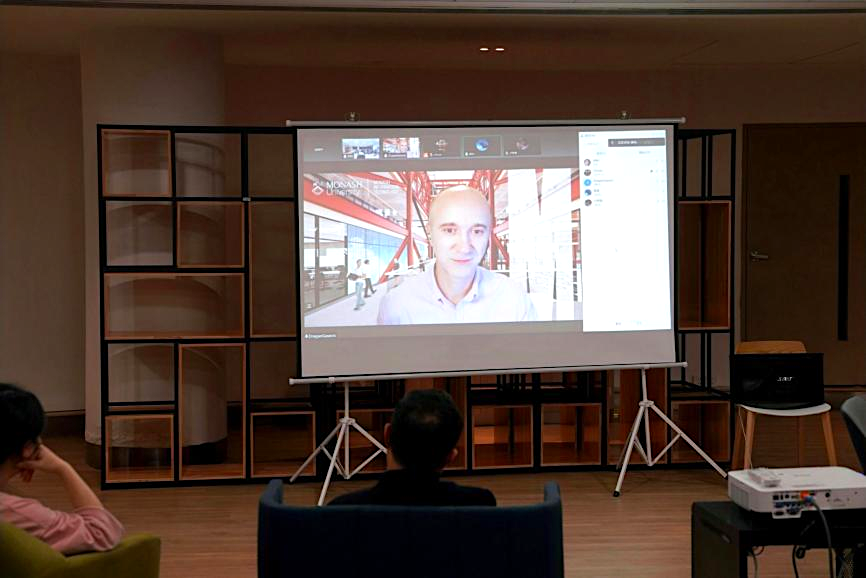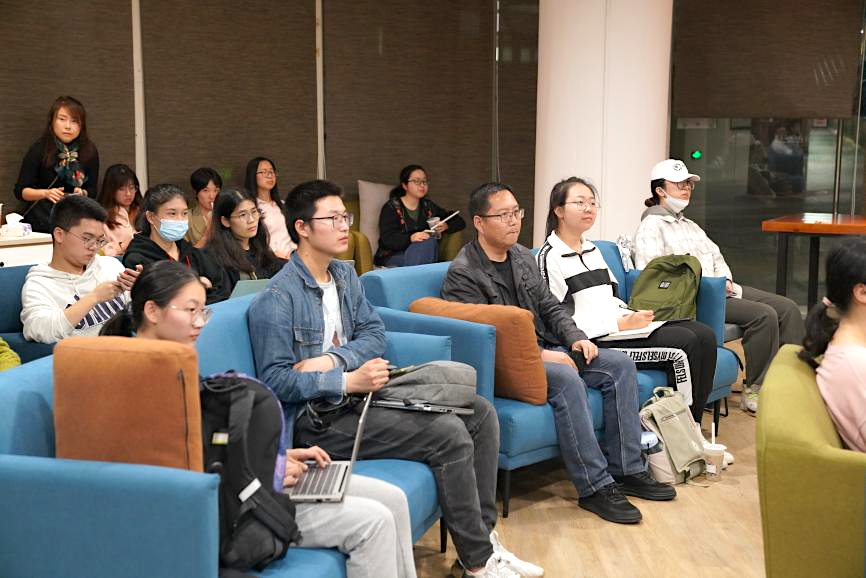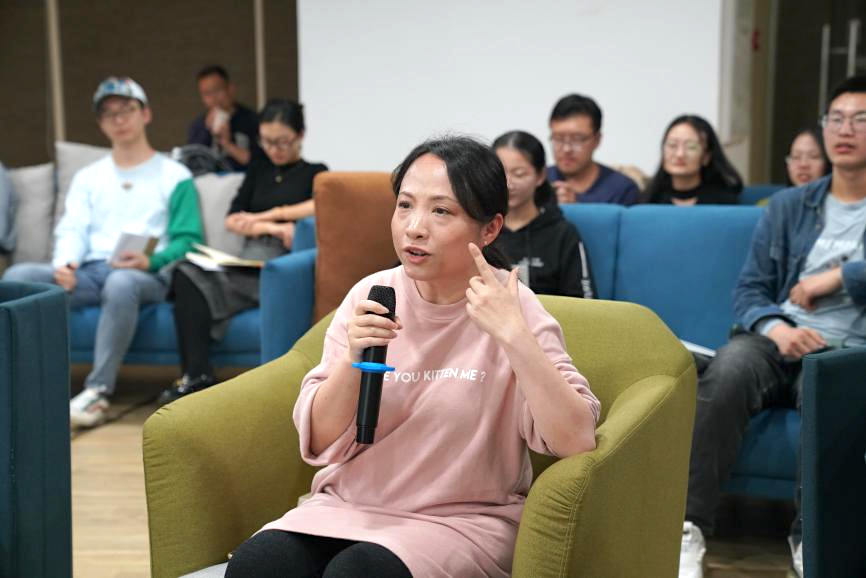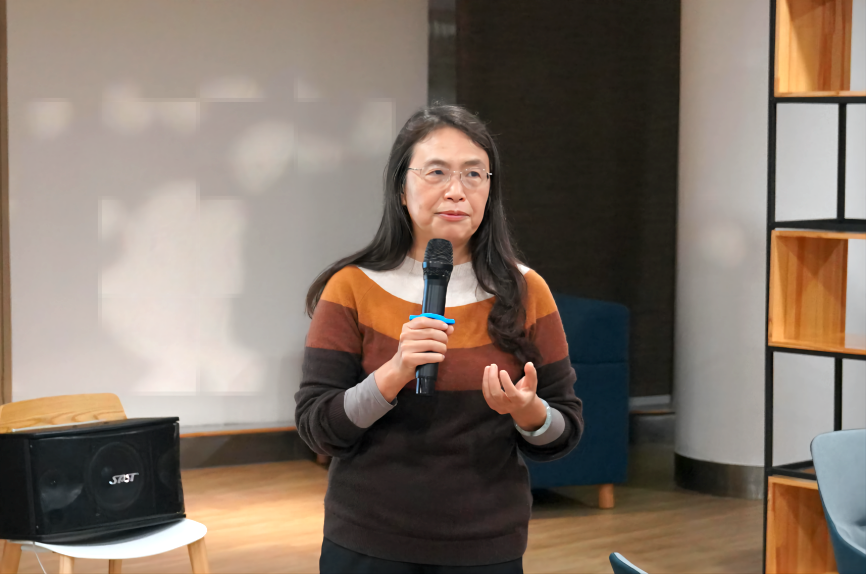On December 15th, the 5th Future Education International Salon, hosted by the Future Education College, was successfully held in the E310 Lecture Hall of the Lijiao Building. The Intelligent Education Research Center of the college invited Dragan Gašević, Director of the Learning Analytics Center at Monash University in Australia, to give a wonderful lecture titled "Learning Analytics in the Age of AI: Opportunities and Challenges" to faculty and students. The salon event was chaired by Professor Yuan Li, the head of the Intelligent Education Research Center, and was attended by more than 50 faculty and students both online and offline.

First, Professor Gašević expressed his understanding and support for large-scale personalized feedback and adaptive learning, but he also emphasized the need for privacy protection. Professor Gašević's team is committed to developing privacy protection frameworks and guidelines to regulate the use of learning technologies in the teaching process of higher education institutions, in order to better promote the application of learning analytics. He pointed out that the development of artificial intelligence brings great potential to learning analytics, but AI cannot improve the quality of data. High-quality learning design plays a key role in collecting high-quality data.
Next, Professor Gašević pointed out that learning analytics should be driven by problems rather than data. He said that in the learning context module, the learning analytics results obtained in different teaching environments are different. It is not easy to apply the analysis model used in one course or subject to another course or subject. Specific modeling does not have transferable characteristics. At the same time, Professor Gašević emphasized that people's understanding of the value of deep learning is limited, and the interpretability of artificial intelligence is very important. What people need to do is to evaluate and deal with the problems and challenges faced by machine learning algorithms correctly.
Finally, Professor Gašević said that although artificial intelligence provides new possibilities for the development of learning analytics, it cannot simply be assumed that technology can solve all the problems faced by education. People need to think more about the opportunities and challenges that intelligent technology brings to education. Artificial intelligence can record students' learning trajectories, track learning progress, and provide personalized feedback, but the application of machine learning is limited, and the role of artificial intelligence should be evaluated from the perspective of promoting learning. Learning analytics design should be people-oriented, and the role of artificial intelligence should be well played, making it an effective tool to promote student learning.

During the open Q&A session, teachers and students had discussions on issues such as data collection and analysis, data quality, and learning interventions. Teacher Gu Peiti asked about the feasibility of using artificial intelligence adaptive learning in mathematics teaching. Professor Gašević said that in the past decade, adaptive learning has been very successful in the commercial market. Adaptive learning does not specifically refer to students' learning, but rather the process in which learners interact with adaptive learning systems through their own knowledge and experience to acquire knowledge and skills. Scholars should further study and pay attention to students' learning processes, and use adaptive technology to help students engage in self-directed learning.
PhD student Hao Zhuo from the School of Artificial Intelligence asked about the issues to be noted when collecting classroom data. Professor Gašević said that when using cameras to collect students' learning data, it is important to respect and protect students' privacy. Professor Gašević's team has cooperated with schools in Victoria, Australia to collect data while successfully addressing privacy protection issues. They were able to understand students' learning processes and improve teaching effectiveness through the support of artificial intelligence technology, promoting teachers' professional development.

PhD student Wu Zhichao asked how to judge the quality of learning design. Professor Gašević said that learning design is similar to assessment and evaluation, and requires data to verify its effectiveness and rationality. To evaluate the quality of learning design, one can observe whether it can help students achieve the expected learning outcomes, whether students participate in the design activities, and whether students do what they should do during the activities.

At the end of the event, Professor Yuan Li made a concluding speech, stating that the Center for Intelligent Education will strengthen research cooperation with Professor Gašević's team in the fields of artificial intelligence and learning analytics in the future. She also invited Professor Gašević to visit the college and have more in-depth exchanges with faculty and students. The salon event came to a successful conclusion.



 Last Page
Last Page

 Phone:0756-3621121
Phone:0756-3621121
 Email:ccie@bnu.edu.cn
Email:ccie@bnu.edu.cn